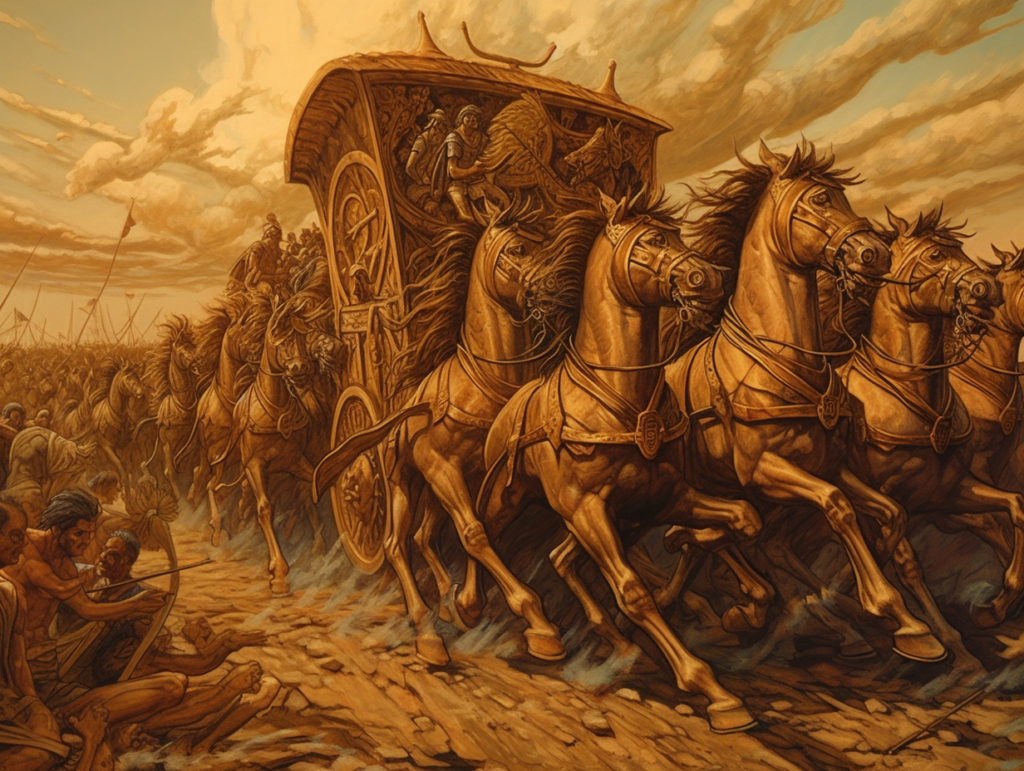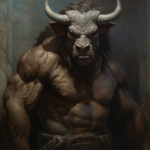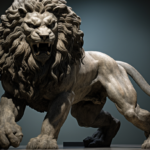Are you ready to delve into the epic legacy of the Trojan War?
Brace yourself for a thrilling journey as you uncover the origins, witness the key players in action, and experience the divine intervention that shaped this legendary conflict.
From the blood-soaked battlefields to the lasting impact it left behind, the Trojan War holds a timeless allure that continues to captivate and inspire.
Get ready to embark on an adventure of myth and history like no other.
Key Takeaways
- The Trojan War was a blend of historical evidence and mythical origins, believed to have taken place in the late Bronze Age around the 12th century BCE.
- The war was sparked by the abduction of Helen, the wife of Menelaus, by Paris, a prince of Troy, and lasted for ten years.
- Key players in the Trojan War included Achilles, Odysseus, Helen of Troy, Hector, and Cassandra, who all played significant roles in the conflict.
- The war involved epic battles showcasing the skill and strategy of warriors like Achilles and Hector, as well as the use of tactics like the Trojan Horse by the Greeks. Divine intervention from gods and goddesses also influenced the outcome of the war.
The Origins of the Trojan War
If you’re curious about how the Trojan War began, let’s explore its origins.
The story of the Trojan War is a blend of historical evidence and mythical origins. While the war itself is believed to have taken place in the late Bronze Age, around the 12th century BCE, its roots trace back to ancient Greek mythology.
According to the legends, the war was sparked by the abduction of Helen, the wife of Menelaus, by Paris, a prince of Troy. This act of love, or rather, lust, ignited a conflict that would last for ten long years. However, it’s important to note that historical evidence suggests that the war may have been a result of various complex factors, such as territorial disputes and economic rivalries.
As we delve deeper into the origins of the Trojan War, we’ll uncover the key players who played pivotal roles in this epic conflict. So, let’s journey into the world of ancient Greece and discover the heroes and heroines who shaped the fate of Troy and Greece forever.
Key Players in the Trojan War
As you delve into the world of the Trojan War, you’ll encounter a multitude of key players who fought on both sides of the conflict. Heroes and heroines in the Trojan War displayed immense courage and skill, becoming legendary figures in the annals of history.
On the Greek side, there were formidable warriors such as Achilles, known for his invincibility and his rage that fueled his feats of valor. Odysseus, renowned for his cunning and strategic mind, devised the idea of the Trojan Horse, a pivotal moment in the war. And let’s not forget about the brave and resourceful Helen of Troy, whose beauty sparked the war in the first place.
On the Trojan side, Hector, the noble prince of Troy, was revered for his bravery and loyalty to his city. His strategic tactics on the battlefield were crucial in defending the city against the Greek invaders. And then there was the Trojan priestess Cassandra, blessed with the gift of prophecy but cursed to never be believed, she foresaw the fall of Troy but was unable to prevent it.
The Trojan War was a conflict marked by both physical prowess and cunning strategies. The Greeks employed various tactics to break through the impenetrable walls of Troy, including the use of the Trojan Horse, a brilliant ruse that allowed them to infiltrate and conquer the city. On the other hand, the Trojans relied on their superior defensive strategies, utilizing their city’s walls and fortifications to hold off the relentless Greek attacks for ten long years.
In this epic clash of civilizations, heroes and heroines emerged, employing their unique skills and strategies to gain the upper hand. The Trojan War wasn’t only a battle of physical might, but also a test of intelligence, creativity, and resourcefulness.
The Epic Battles of the Trojan War
Throughout the epic battles of the Trojan War, you’ll witness the relentless clashes between the Greek and Trojan forces. These battles weren’t only a test of strength and courage but also a showcase of the strategic tactics employed by the famous warriors on both sides.
Among the most renowned warriors in the Trojan War was Achilles, known for his incredible speed and skill on the battlefield. He used his strategic prowess to outmaneuver his enemies and strike fear into the hearts of the Trojans. Hector, the greatest Trojan warrior, also displayed exceptional tactical thinking. He used his knowledge of the terrain to his advantage, often luring the Greeks into unfavourable positions.
Both sides utilized various strategic tactics during the war. The Greeks employed the infamous Trojan Horse, a cunning plan to infiltrate the city of Troy. This deceptive strategy allowed them to surprise the Trojans and ultimately win the war. On the other hand, the Trojans utilized their defensive walls and superior archery skills to repel the Greek forces.
The battles of the Trojan War were a testament to the indomitable spirit of freedom and the lengths people would go to defend it. The famous warriors and their strategic tactics played a crucial role in shaping the outcome of this legendary conflict.
Divine Intervention and the Trojan War
With the divine beings taking an active role in the conflict, you’ll witness their intervention shaping the outcome of the Trojan War. In ancient mythology, divine intervention was a common occurrence, and the Trojan War was no exception. Gods and goddesses played a significant role in this epic battle, often influencing the actions and decisions of mortals.
One of the most notable instances of divine intervention was the involvement of the goddess Aphrodite. She played a pivotal role in the war by promising Paris, a Trojan prince, the love of the most beautiful woman in the world, Helen. This sparked the conflict between the Trojans and the Greeks, ultimately leading to the ten-year war.
Another example of divine intervention was the interference of the god Apollo. He protected the Trojan prince Hector, providing him with strength and courage during the battles. Apollo’s intervention allowed Hector to become a formidable warrior, posing a great threat to the Greek forces.
On the Greek side, the goddess Athena played a crucial role in the outcome of the war. She guided and aided the Greek hero Odysseus, helping him devise cunning strategies and plans. Athena’s intervention ensured the eventual victory of the Greeks.
The divine intervention in the Trojan War not only added a sense of grandeur and mythical elements to the story but also showcased the power and influence of the gods and goddesses in ancient mythology. Their actions played a significant role in shaping the outcome of the war and the legacy it left behind.
The Impact and Legacy of the Trojan War
You will be amazed by the lasting impact and enduring legacy that the Trojan War has had on both ancient and modern cultures. The cultural significance of the Trojan War can’t be overstated. It has become a symbol of heroism, bravery, and sacrifice. The tales of the war have inspired countless works of art, literature, and music, capturing the imagination of people throughout history. The historical interpretations of the Trojan War have also shaped our understanding of the ancient world. Scholars have debated the actual events and characters involved, but the mythical retelling of the war has left a profound imprint on our collective consciousness.
The legacy of the Trojan War is felt in various aspects of our society. Here are two sub-lists to give you a glimpse of its impact:
Ancient Cultures:
- The Trojan War created a foundation for epic storytelling and heroic ideals in ancient Greek culture. It influenced the works of renowned poets like Homer, who composed the Iliad and the Odyssey.
- The war also played a significant role in the establishment of Greek city-states, as the mythic stories of the war helped forge a sense of identity and unity among the Greeks.
Modern Cultures:
- The Trojan War continues to captivate audiences worldwide through literature, film, and theater adaptations. It remains a source of inspiration for contemporary authors and filmmakers, such as the famous movie ‘Troy’ starring Brad Pitt.
- The Trojan War has entered popular culture, with references to its characters and events appearing in everyday language and media. Phrases like ‘Trojan horse’ and ‘Achilles’ heel’ are now part of our lexicon.
The impact and legacy of the Trojan War are deeply ingrained in both ancient and modern cultures, forever influencing the way we perceive heroism and the human condition.







